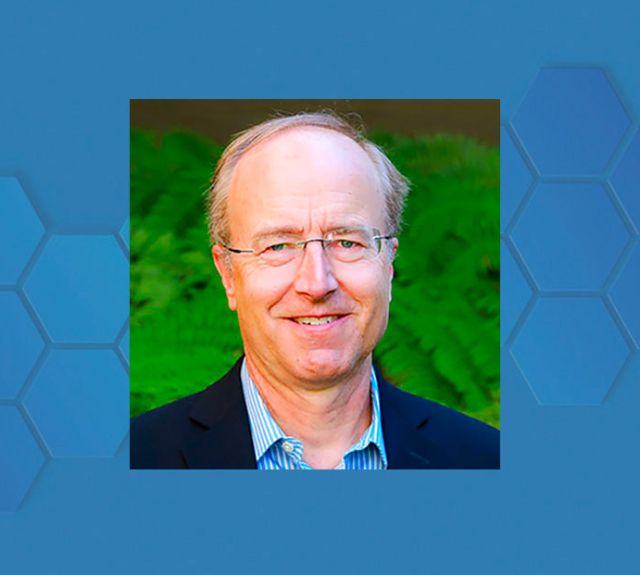Bowers: Jun-ichi Nishizawa Medal
ECE Prof. John Bowers receives the 2024 Jun-ichi Nishizawa Medal from the Institute of Electrical and Electronics Engineers (IEEE)

From The College of Engineering News – "John Bowers Receives the 2024 Jun-ichi Nishizawa Prize"
John Bowers, a distinguished professor of ECE in the UCSB College of Engineering, the Fred Kavli Chair in Nanotechnology, and the director of the UCSB Institute for Energy Efficiency, has been selected to receive the IEEE Jun-ichi Nishizawa Medal for his “contributions to photonic integrated circuit technologies”
“This is a wonderful recognition of the silicon photonic integrated circuit (PIC) work that my group is doing,” said Bowers, an internationally renowned authority on optoelectronics whose research is focused on silicon photonics and optoelectronics, with the goals of developing energy-efficient technology for the next generation of optical networks. “It is particularly gratifying because Nishizawa, with over a thousand patents, is considered the father of Japanese microelectronics. He contributed important innovations in the fields of optical communications and semiconductor devices, including the graded-index fiber, avalanche photodiode, and many other devices.”
The Nishizawa Prize is among the most prestigious given by the IEEE. Nominees are evaluated based on criteria that include the quality of one’s technical achievement, the extent to which their innovations have enhanced technology, the impact of their innovations on the relevant technical community and the profession, and their benefit to society, publications and patents.
“I’m delighted to hear that Professor John Bowers has been selected to receive the Nishizawa Prize for 2024,” said COE dean and professor of electrical and computer engineering, Umesh Mishra, who received the same award in 2022. “John and his lab researchers have been at the forefront of photonics for more than twenty years. Their innovative technologies, especially in the area of integrated on-chip lasers, have enabled tremendous gains in speed and efficiency in an array of applications produced at scale. John is an exceedingly deserving recipient of this award, and we offer him sincere congratulations.”
Bowers gives abundant credit to the graduate students and postdoctoral researchers in his group for their work in advancing photonic research over the years. “I'm grateful for the important contributions that my students have made, particularly Alex Fang (PhD, 2008) and Hyundai Park (PhD, 2008), who developed the silicon laser technology that Intel has so successfully commercialized, with over ten million transceivers deployed in data centers around the world,” Bowers said. “Similarly, [postdoctoral researchers] Tin Komlejenovic and Chong Zhang, and [PhD student] Minh Tran have extended this technology into shorter wavelengths for a wide variety of applications. Most recently, Alan Liu [PhD ’16] and [postdoctoral researcher] Justin Norman (PhD ’18), and [postdoctoral fellow] Chen Shang [PhD ’22] have developed quantum-dot PICs that may enable the next revolution in high-capacity, low-cost interconnects by epitaxially growing laser material on silicon. This is something that [emeritus professor and winner of the 2000 Nobel Prize in physics] Herb Kroemer started forty years ago and now is looking like it could make a commercial impact. It certainly has made a big scientific impact.”
Bowers noted, too, the importance of his faculty colleagues and UCSB’s array of world-class facilities and instruments in enabling his achievements. “This work wouldn't have been possible without the incredible clean-room capability that UCSB has,” he said, “nor could it have happened without collaborations involving so many outstanding faculty, from Kroemer, Larry Coldren, Steve DenBaars, [the late] Art Gossard, Chris Palmstrom, Nadir Dagli, and Dan Blumenthal, to recent hires including Galan Moody, who is leading a spectacular quantum computing effort that should result in new breakthroughs. I’m also grateful for valuable collaborations with Professors Kerry Vahala at Caltech, Lin Chang at Peking University, and Yating Wan at King Abdullah University of Science and Technology in Saudi Arabia.”
A serial entrepreneur who used to teach a course at UCSB for aspiring entrepreneurs, Bowers has commercialized many of his innovations. He is a cofounder of Nexus Photonics, Quintessent, Aurrion, Aerius Photonics, Terabit Technology, and Calient Networks. He is a member of the National Academy of Engineering and the National Academy of Inventors, and is a fellow of American Association for the Advancement of Science, IEEE, Optica (formerly OSA), and the American Physical Society.
COE News – "John Bowers Receives the 2024 Jun-ichi Nishizawa Prize"